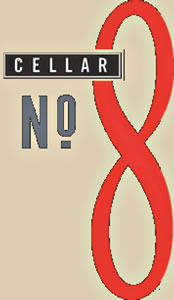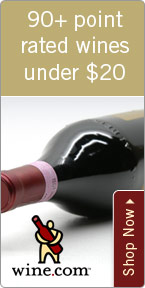How Fruit, Flower, Leaf And Root Affect Wine

Wednesday - July 01, 2009
| Share
 Del.icio.us
Del.icio.us
|
Do you believe that your mood influences the taste of a wine? How about the company you are with when you’re drinking it? I do. And I certainly know that the right glassware influences the flavor of the wine as well.
But could you believe that big balls of gas and rock, balls thousands of times larger than our Earth and light-years away - I’m talking about stars, planets and moons - might be able to influence not only the way vines are grown but how they taste according to when we drink them?
I know it sounds a bit outlandish, but it may just be true. Biodynamic viticulture is not new. It has been practiced by civilizations for centuries. Only in the 1960s was this practice put onto paper by Rudolf Steiner. To summarize, it takes into account the position of the planets, constellations, moon and sun in the heavens during certain times of the year, month or week. By looking at this calendar of events, a farmer can best utilize his positions and energies to support the health and growth of the plant. There also are certain preparations that are recommended to be added to the earth during certain times of the calendar.
This calendar is used in apiculture as well. Biodynamic farming looks at the entire estate as a singular organism/ecosystem to improve its health as well as prevent infections or pestilence.
So what does all this have to do with how a wine tastes?
Well, in the calendar there are four basic types of sowing days: Fruit, Flower, Leaf and Root. Fruit days are seen as the best days for planting fruit growing plants such as vines, oranges, apples, etc. Flower days are best for flowering plants i.e. roses, lilies, cauliflower, broccoli and more. Leaf days are best for leafy plants like lettuces, cabbages and the like. Root days - you guessed it - are for root vegetables: carrots, potatoes, beets, etc. These days may play a factor in how wines taste on those days as well. Wines can taste fruitier on Fruit days, more flowery or elegant on Flower days, and more earthy and vegetal on Leaf and Root days.
At first I got this information as anecdotal evidence from wine salespeople and suppliers. They thought that the wines tasted better on Fruit days. They also found that they sold more wines from tastings that were scheduled on a Fruit day.
(The frequency of flower, leaf, etc. days changes each month according not only to the lunar cycle but also planetary orbits. There is no set pattern, but there are on average six to eight fruit days per month.)
I’ve been doing my own surveying for nearly two years, and I am finding it to be true. And it is not with just one wine. When I have had dinners with multiple wines on Fruit days, it seems that all the wines taste as good as they possibly could. On Root and Leaf days, there may be less consistency, perhaps one or two great wines, but not everything tastes as good as I think it should.
Could this be the answer behind bottle variation? This is not to suggest that drinking a great wine on a Root or Leaf day will make it taste terrible. It depends on how you like your wine as well as the quality of the wine. I think great wines will always taste great.
I certainly do not have the answers for why or how this happens, but there must be forces in nature that we do not yet know about or have yet to explain.
Recommendations: 2008 Cellar No. 8 Pinot Noir ($10) may be the “best” buy in Pinot Noir. It has a flowery cherry fruit nose with a sweet red berry flavor. The texture is elegant and quite satisfying and at this price for Pinot Noir you can’t go wrong! 2006 Guigal Condrieu La Doriane ($89) This is the greatest expression of Viognier that has crossed my lips this year. It has an amazing nose of puakenikeni flowers, apricots and peaches. The texture is downright sexy with great intensity as well as balance. It epitomizes true class.
Roberto Viernes is a master sommelier. E-mail .(JavaScript must be enabled to view this email address)E-mail this story | Print this page | Comments (0) | Archive | RSS Comments (0) |
Most Recent Comment(s):












